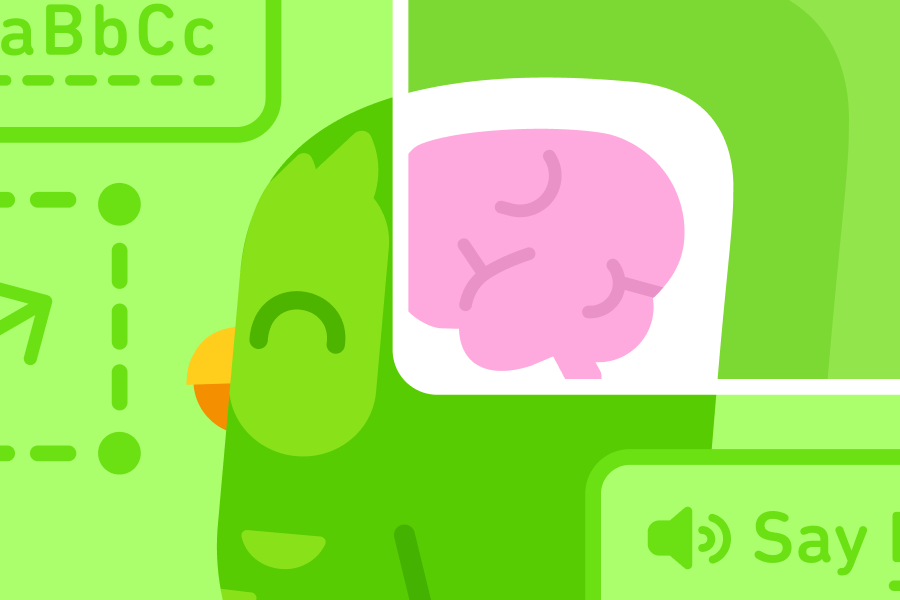There has been plenty of research that connects bilingualism to brain health, but a new study from Baycrest and York University reveals the process of learning a second language also has cognitive benefits. The joint study found that, in older adults, studying a second language boosts cognitive function after just a few months!

Understanding the study
For this study, researchers asked a group of adults ages 65-75 to either study Spanish on Duolingo (30 minutes a day, five days a week for 16 weeks), or spend the same amount of time using BrainHQ, a brain-training app. The researchers then evaluated the groups’ “executive function” (a measure of information processing) before and after the 16-week period, and the groups’ scores were compared to the test scores of a “control” group that didn’t use either app. Duolingo learners and BrainHQ learners both demonstrated improved executive functioning and working memory, despite only one of the apps being an explicit “brain trainer”!
“These results are exciting because they indicate that older adults can reap cognitive benefits from an enjoyable activity in which they might want to participate, regardless of these benefits,” says Dr. Jed Meltzer, Baycrest’s Canada Research Chair in Interventional Cognitive Neuroscience and lead author on the study.
The brain loves learning
Research on cognitive health in older adults often focuses on lifelong bilinguals, but this research explores how the process of learning might affect cognitive functioning. The purpose of Duolingo courses is to teach you to use and understand a new language—so this improvement in executive functioning is an added bonus! Duolingo learners transferred benefits from one realm (language learning) to another (executive functioning).
The learners in the study had never studied Spanish before, and hadn't studied any language at all in the previous 10 years—making it all the more impressive that these cognitive benefits came after just a few months of consistent study.
“The participants in our study showed significant cognitive improvements without becoming nearly fluent in Spanish, which suggests that you don’t have to be bilingual for your brain to benefit from working with another language,” says Dr. Ellen Bialystok, Distinguished Research Professor in the Department of Psychology at York University, and Associate Scientist at the Rotman Research Institute. “This is encouraging since bilingualism is often reached early in life and difficult to achieve in adulthood, while we can choose to learn another language at any age to reap some of the cognitive benefits enjoyed by bilingual individuals.”
Why it matters for language learners
There are many reasons to study a new language, and at Duolingo we want everyone to enjoy the learning journey, no matter your goal. We think this study reinforces two important things for all learners to remember:
- It’s never too late to start learning a language! For most of us, it’s too late to become a “lifelong” bilingual, so is it even worth starting a new language now? Yes! Older adults who began studying Spanish on Duolingo ages 65 or older saw improved cognitive functioning after just a few months.
- Studying with Duolingo is good for your brain (oh yeah, and it’s good for learning a language, too). Language learning on Duolingo offers all kinds of benefits, and this new research shows the impact learning has on brain functioning—but you’ll also be able to engage with new shows on Netflix, connect with family, and meet new people around the world!
This study was funded in part by Duolingo and the Centre for Aging + Brain Health Innovation (CABHI). Duolingo did not contribute to or review the study design, data collection, analysis, or interpretation of the results; we invested in this work because we believe that cognitive health, especially for older adults, is an important topic. We are excited to learn from the experts about how language learning can contribute to cognitive health!
